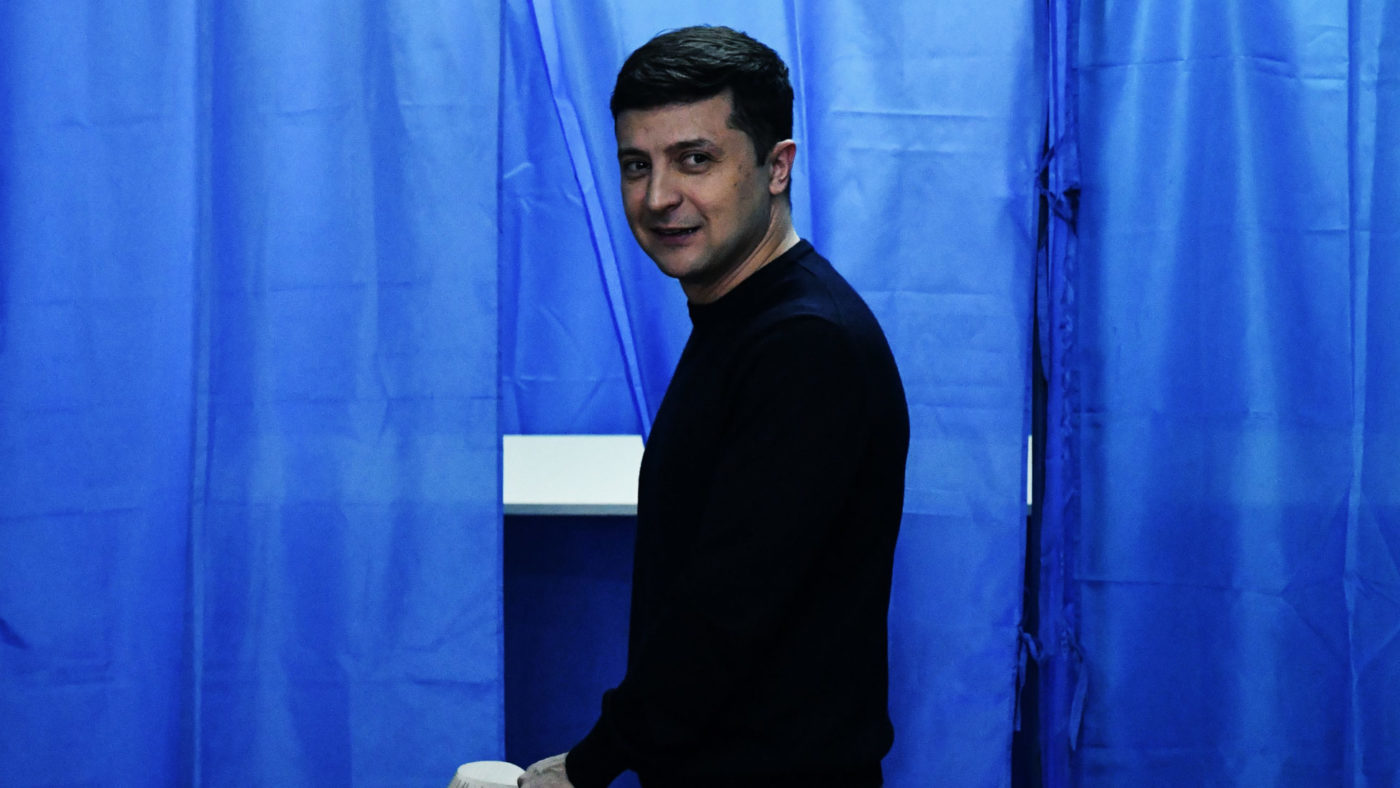Over the weekend, Ukraine elected a new president – the sharp but politically inexperienced comedian Volodymyr Zelensky. In the end his victory was no great surprise, given the polls had given him an overwhelming lead against the incumbent, Petro Poroshenko.
Zelensky’s strongest card against both Poroshenko and former prime minister Yulia Tymoshenko was the fact that he had never taken money from the Ukrainian state. The fact that his comedic projects have been financed through Russia’s state budget was largely ignored, not only by the majority of voters but also by Western observers. As was the fact that his popularity stemmed from 16 years appearing on a TV channel owned by Ihor Kolomoysky, Ukraine’s most politically savvy billionaire businessman.
Kolomoysky has described the comedian as a “symbol of generational change” and argued that Ukraine “needs millions of Zelenskys”. Given that he has financed battalions to fight pro-Russian separatists in eastern Ukraine, Kolomysky’s support for a candidate with close business links to Russia looks decidedly pragmatic. And while the oligarch’s feud with Poroshenko is well publicised, less well know are allegations that his henchman Ihor Palitsa’s bought off separatists in the coastal city of Odessa – a move which may have helped the Ukrainian army secure the country’s territorial integrity.
So what does Zelensky’s victory mean for Ukraine and its future relations with Russia?
During his campaign Zelensky confirmed that he supported the idea of Ukraine joining Nato, but added that he would put the question to a nationwide referendum. This was a decidedly different approach to Poroshenko, who had only recently signed a constitutional amendment committing the country to becoming a member of both Nato and the European Union.
The one thing that will looks like stopping Zelensky’s plan for a referendum is that he would need a vote in Ukraine’s parliament, the Verkhovna Rada, to approve it. It looks unlikely that such a law would get the green light with the current parliamentary arithmetic, and in any case Zelensky will be busy himself preparing his party for upcoming parliamentary elections. That said, if Zelensky survives for more than a year, he might be able to make good on one of his major campaign promises.
Another surprising aspect of the coverage of the campaign, was the lack of reaction in the West to serious allegations which emerged after the first round of voting. At the beginning of April, the independent Mirotvorets Centre released emails allegedly showing that Zelensky’s campaign had received money from the Russian secret services.
The Centre reported that Russian officer Andrei Pinchuk had instructed the owner of the WEX cryptocurrency exchange, former separatist fighter Dmitry Khavchenko, to transfer significant amounts of money to Zelensky’s campaign. In December last year, the BBC reported that Khavchenko’s family had become the owners of the Russian branch of WEX. Khavchenko – or Moryachok, as his militant fellows called him – was present at Moscow’s first congress of Donbass volunteers in 2015 and WEX was meant to become a platform for financing the separatist Donetsk and Lugansk People’s Republics.
Zelensky was also the only prominent candidate who openly supports opening a dialogue with Russia and establishing a peacekeeping operation on the border with Russia. Whether that would involve negotiating with the separatists remains an open question, since Zelensky never clarified what he meant. However, given Kolomoysky’s battalions’ own experience of dealing with the separatists when he was governor of Dnepropetrovsk, there may be a chance of inviting the two self-proclaimed republics into direct negotiations with the Ukrainian authorities, something which would go against Poroshenko’s stated policy of not talking to the terrorists.
Russia’s Prime Minister Dmitry Medvedev was quick to react to Zelensky’s victory, saying that “there are chances to improve Ukraine’s interaction with our country”. For the Kremlin, the ideal scenario would be to put an end to the accusations and, in many cases, evidence that Russia is involved in Ukraine. The Russian economy is not doing well and because Kyiv has been successful in sharing and shaping information about Moscow’s involvement, sweeping international sanctions against Russia are still in place.
Given Zelensky’s electoral promises, it looks as though Moscow has a chance of shifting the current pattern of negotiations on Donbass. Zelensky is important to Russia for two reasons. First, because the incoming Ukrainian president’s decisions on issues such whether to join Nato will affect relations with Russia. Secondly, if supported by the Verkhovna Rada, he will determine Ukraine’s foreign policy. The big question now is whether Zelensky will prove himself successful in winning in the Rada, which will depend on his willingness to cooperate with the established parties – for the time being, he is a king without a crown.
CapX depends on the generosity of its readers. If you value what we do, please consider making a donation.


